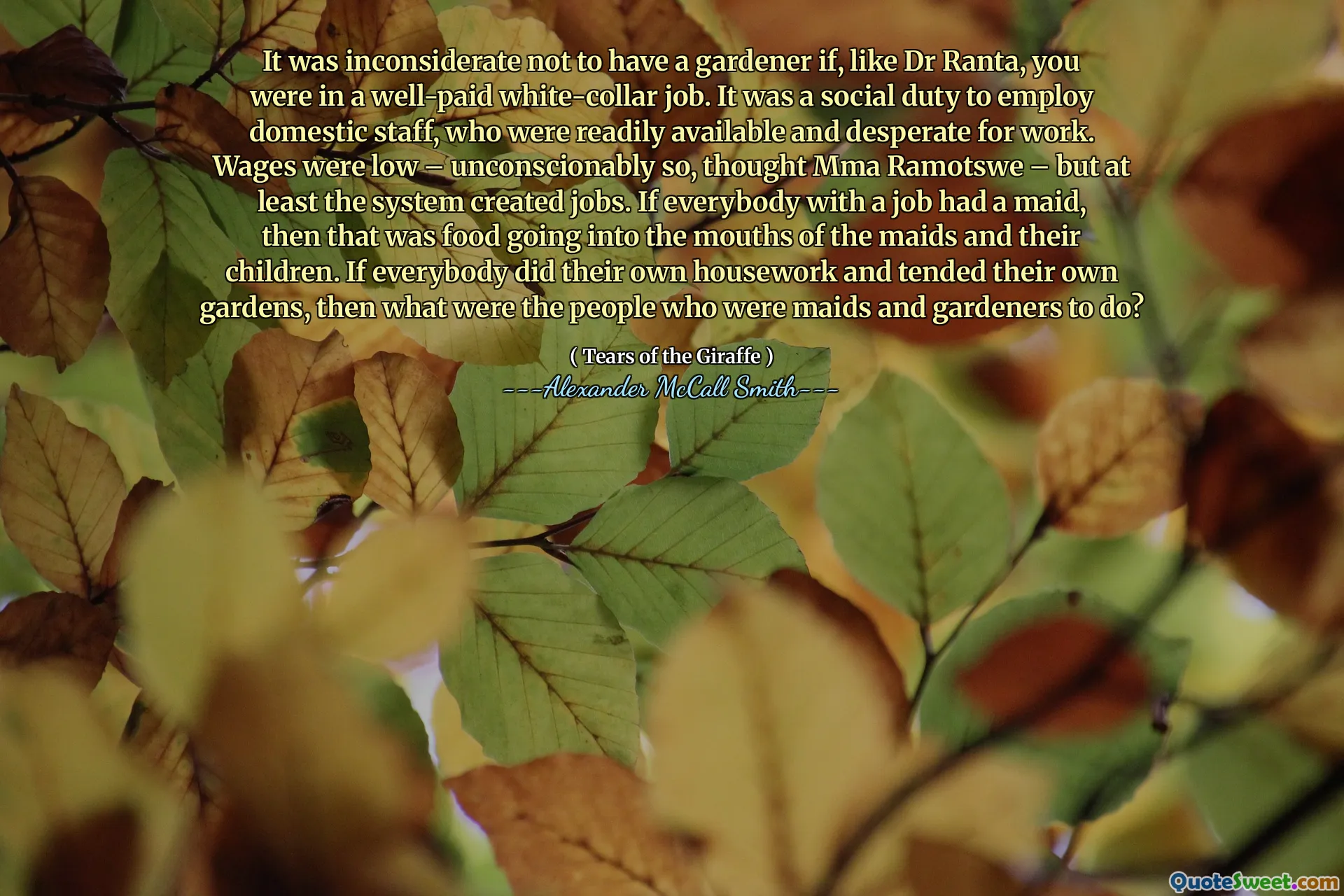
It was inconsiderate not to have a gardener if, like Dr Ranta, you were in a well-paid white-collar job. It was a social duty to employ domestic staff, who were readily available and desperate for work. Wages were low – unconscionably so, thought Mma Ramotswe – but at least the system created jobs. If everybody with a job had a maid, then that was food going into the mouths of the maids and their children. If everybody did their own housework and tended their own gardens, then what were the people who were maids and gardeners to do?
In "Tears of the Giraffe," the character Mma Ramotswe reflects on the social responsibilities of those in well-paid positions, like Dr. Ranta, to hire domestic workers. She believes that having a gardener or maid is not just a personal choice but a social obligation, especially given the widespread availability of individuals seeking such employment. Mma Ramotswe acknowledges the low wages offered to these workers but feels that this practice is crucial for providing them with livelihoods and supporting their families.
Her perspective emphasizes that employing domestic staff contributes to the economy and sustains jobs for individuals otherwise left without work. She argues that if everyone performed their own housework, it would eliminate these roles, leading to more hardships for those dependent on such positions. This commentary presents a nuanced view of social inequality, suggesting that engaging domestic workers is a means of aiding those in more precarious situations within the community.











